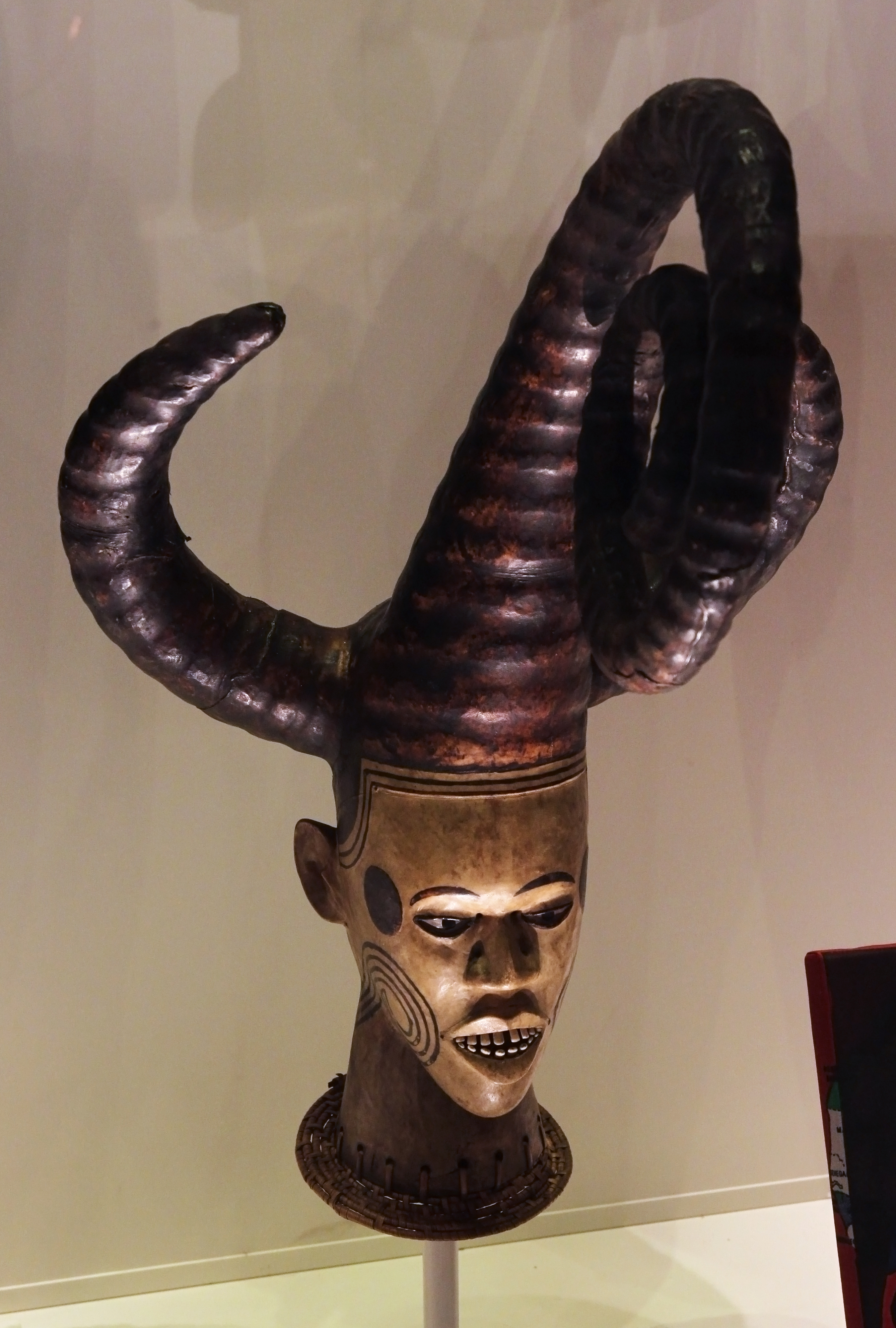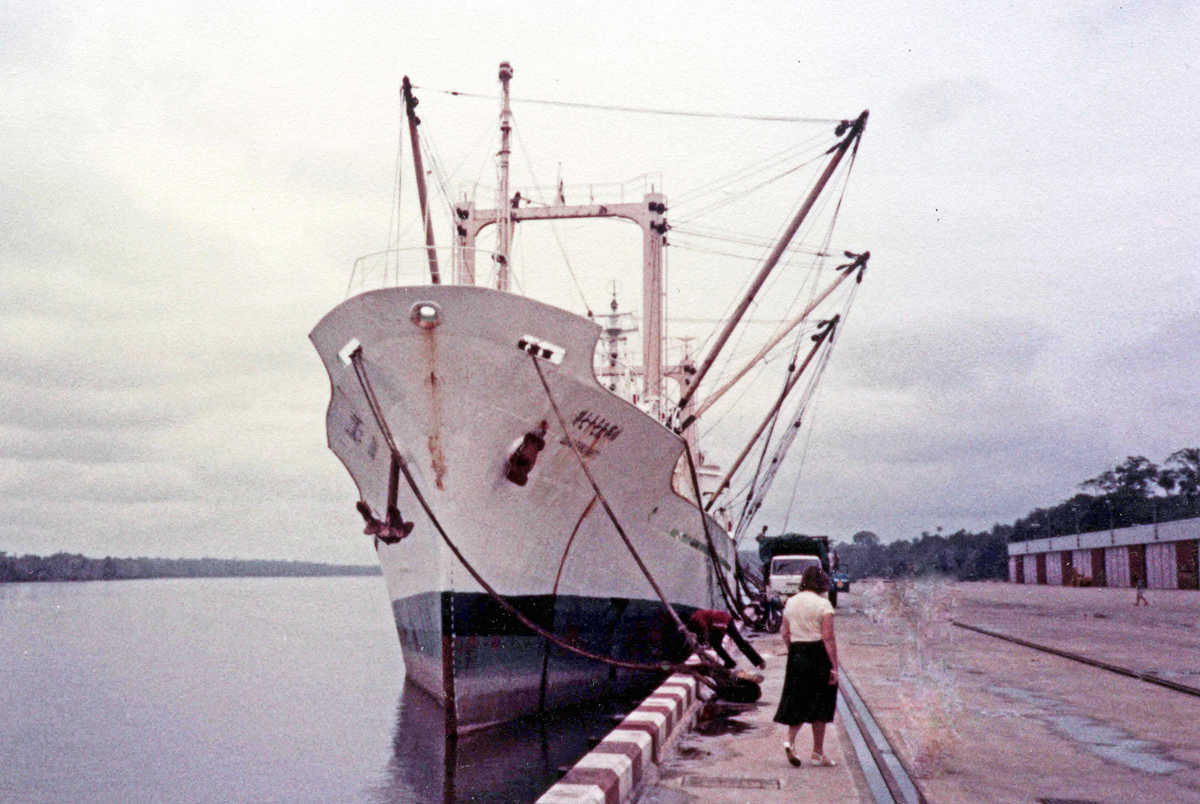|
Akwa Akpa
Duke Town, originally known as Atakpa is an Efik people, Efik city-state that flourished in the 19th century in what is now southern Nigeria. The City State extended from now Calabar to Bakassi in the east and Oron (state), Oron to the west. Although it is now absorbed into Nigeria, traditional rulers of the state are still recognized. The state occupied what is now the modern city of Calabar. Origins and society The Efik speak a language in the Obolo, Nigeria, Obolo subgroup of the Niger–Congo language group. They had become a power on the coast of the Bight of Biafra by the early 18th century, by which time the Duke and Eyamba families were their leaders. They were settled in large, fortified villages along the waterways, in a loose federation with no paramount ruler, living by fishing and farming. The largest settlements were Ikot Itunko, Obutong and Iboku Atapka. In the 19th century, the British renamed these as Creek Town, Old Town and Duke Town. Religion The traditional ... [...More Info...] [...Related Items...] OR: [Wikipedia] [Google] [Baidu] |
Efik People
The Efik are an ethnic group located primarily in southern Nigeria, and western Cameroon. Within Nigeria, the Efik can be found in the present-day Cross River State and Akwa Ibom state. The Efik speak the Efik language which is a member of the Benue–Congo subfamily of the Niger-Congo language group. The Efik refer to themselves as Efik Eburutu, Ifa Ibom, Eburutu and Iboku. Simmons, p.11 The name Efik first appears in historical literature in the nineteenth century. The most popular historical accounts of Efik migration attest a movement from Ibom in Arochukwu to Uruan and from Uruan to numerous settlements along the lower Cross river. The bulk of the Efik can be found in Calabar. Prior to 1905, Old Calabar was a term used to describe the Efik settlements of Duke Town, Creek Town, Old town, Cobham town, Henshaw town, Adiabo and Mbiabo (consisting of Mbiabo edere, Mbiabo Ikot Offiong and Mbiabo Ikoneto). Cotton, p.302 The Efik have also been referred to as "Calabar people" in hist ... [...More Info...] [...Related Items...] OR: [Wikipedia] [Google] [Baidu] |
Slave Trade Act 1807
The Slave Trade Act 1807, officially An Act for the Abolition of the Slave Trade, was an Act of the Parliament of the United Kingdom prohibiting the slave trade in the British Empire. Although it did not abolish the practice of slavery, it did encourage British action to press other nation states to abolish their own slave trades. Many of the supporters thought the Act would lead to the end of slavery. Slavery on English soil was unsupported in English law and that position was confirmed in '' Somerset's case'' in 1772, but it remained legal in most of the British Empire until the Slavery Abolition Act in 1833. Background As British historian Martin Meredith writes, "In the decade between 1791 and 1800, British ships made about 1,340 voyages across the Atlantic, landing nearly 400,000 slaves. Between 1801 and 1807, they took a further 266,000. The slave trade remained one of Britain's most profitable businesses." The Committee for the Abolition of the Slave Trade was ... [...More Info...] [...Related Items...] OR: [Wikipedia] [Google] [Baidu] |
Niger Coast Protectorate
The Niger Coast Protectorate was a British protectorate in the Oil Rivers area of present-day Nigeria, originally established as the Oil Rivers Protectorate in 1884 and confirmed at the Berlin Conference the following year. It was renamed on 12 May 1893, and merged with the chartered territories of the Royal Niger Company The Royal Niger Company was a mercantile company chartered by the British government in the nineteenth century. It was formed in 1879 as the ''United African Company '' and renamed to ''National African Company'' in 1881 and to ''Royal Niger C ... on 1 January 1900 to form the Southern Nigeria Protectorate. References * Thomas Pakenham, '' The Scramble for Africa'' (Random House, 1991), pp. 197–199 StampWorldHistoryStamworld stamp Former British protectorates Former Nigerian administrative divisions History of the petroleum industry History of Nigeria States and territories disestablished in 1900 Niger River Delta Former British coloni ... [...More Info...] [...Related Items...] OR: [Wikipedia] [Google] [Baidu] |
Queen Victoria
Victoria (Alexandrina Victoria; 24 May 1819 – 22 January 1901) was Queen of the United Kingdom of Great Britain and Ireland from 20 June 1837 until her death in 1901. Her reign of 63 years and 216 days was longer than that of any previous British monarch and is known as the Victorian era. It was a period of industrial, political, scientific, and military change within the United Kingdom, and was marked by a great expansion of the British Empire. In 1876, the British Parliament voted to grant her the additional title of Empress of India. Victoria was the daughter of Prince Edward, Duke of Kent and Strathearn (the fourth son of King George III), and Princess Victoria of Saxe-Coburg-Saalfeld. After the deaths of her father and grandfather in 1820, she was raised under close supervision by her mother and her comptroller, John Conroy. She inherited the throne aged 18 after her father's three elder brothers died without surviving legitimate issue. Victoria, a constituti ... [...More Info...] [...Related Items...] OR: [Wikipedia] [Google] [Baidu] |
King Archibong
King is the title given to a male monarch in a variety of contexts. The female equivalent is queen, which title is also given to the consort of a king. *In the context of prehistory, antiquity and contemporary indigenous peoples, the title may refer to tribal kingship. Germanic kingship is cognate with Indo-European traditions of tribal rulership (c.f. Indic ''rājan'', Gothic ''reiks'', and Old Irish ''rí'', etc.). *In the context of classical antiquity, king may translate in Latin as '' rex'' and in Greek as '' archon'' or '' basileus''. *In classical European feudalism, the title of ''king'' as the ruler of a ''kingdom'' is understood to be the highest rank in the feudal order, potentially subject, at least nominally, only to an emperor (harking back to the client kings of the Roman Republic and Roman Empire). *In a modern context, the title may refer to the ruler of one of a number of modern monarchies (either absolute or constitutional). The title of ''king'' is us ... [...More Info...] [...Related Items...] OR: [Wikipedia] [Google] [Baidu] |
Calabar King Eyos State Canoe
Calabar (also referred to as Callabar, Calabari, Calbari and Kalabar) is the capital city of Cross River State, Nigeria. It was originally named Akwa Akpa, in the Efik language. The city is adjacent to the Calabar and Great Kwa rivers and creeks of the Cross River (from its inland delta). Calabar is often described as the tourism capital of Nigeria, especially due to several initiatives implemented during the administration of Donald Duke as governor of Cross River State (1999–2007), which made the city the cleanest and most environmentally friendly city in Nigeria. Administratively, the city is divided into Calabar Municipal and Calabar South Local Government Areas. It has an area of and a population of 371,022 as at 2006 census. History Calabar was the name given by the Portuguese discoverers from the 15th century to the tribes on this part of the Guinea coast at the time of their arrival, when the present inhabitants in the district were the Quas. It was not till t ... [...More Info...] [...Related Items...] OR: [Wikipedia] [Google] [Baidu] |
Henry John Temple, 3rd Viscount Palmerston
Henry John Temple, 3rd Viscount Palmerston, (20 October 1784 – 18 October 1865) was a British statesman who was twice Prime Minister of the United Kingdom in the mid-19th century. Palmerston dominated British foreign policy during the period 1830 to 1865, when Britain stood at the height of its imperial power. He held office almost continuously from 1807 until his death in 1865. He began his parliamentary career as a Tory, defected to the Whigs in 1830, and became the first prime minister from the newly formed Liberal Party in 1859. He was highly popular with the British public. David Brown argues that "an important part of Palmerston's appeal lay in his dynamism and vigour". Henry Temple succeeded to his father's Irish peerage (which did not entitle him to a seat in the House of Lords, leaving him eligible to sit in the House of Commons) as the 3rd Viscount Palmerston in 1802. He became a Tory MP in 1807. From 1809 to 1828 he served as Secretary at War, organising the fi ... [...More Info...] [...Related Items...] OR: [Wikipedia] [Google] [Baidu] |
Hugh Goldie (other)
Hugh Goldie (1919–2010) was an English theatre director. Hugh Goldie may also refer to: * Hugh Goldie (footballer, born 1874), Scottish footballer active at the turn of the 20th century * Hugh Goldie (footballer, born 1923), Scottish footballer active in the 1950s {{hndis, Goldie, Hugh ... [...More Info...] [...Related Items...] OR: [Wikipedia] [Google] [Baidu] |
Hope Masterton Waddell
Reverend Hope Masterton Waddell (14 November 1804 – 18 April 1895) was an Irish medical missionary in Jamaica and Calabar, Nigeria. The Hope Waddell Training Institution is named after him. Early life and training Waddell was born in Monaghan, Ireland on 14 November 1804 to Susan Hope and the son of Alexander Waddell both members of the Presbyterian Church of Ireland. He expressed an early interest in joining the ministry however was discouraged in doing so due to a speech impediment. At the age of 17 he apprenticed with a druggist before leaving, in 1822 ,to study for the church. He was accepted as a candidate for the missionary in 1825 by the Scottish Missionary Society and in 1827 entered the United Secession Hall. Missionary work in Jamaica Following Waddell's ordainment in 1829, he married Jessie Simpson and together they embarked on a mission to Jamaica with the Church of Scotland Mission. Here he worked with the enslaved population of Cornwall until 1831, when the ... [...More Info...] [...Related Items...] OR: [Wikipedia] [Google] [Baidu] |
Palm Oil
Palm oil is an edible vegetable oil derived from the mesocarp (reddish pulp) of the fruit of the oil palms. The oil is used in food manufacturing, in beauty products, and as biofuel. Palm oil accounted for about 33% of global oils produced from oil crops in 2014. Palm oils are easier to stabilize and maintain quality of flavor and consistency in processed foods, so are frequently favored by food manufacturers. On average globally, humans consumed 7.7 kg (17 lb) of palm oil per person in 2015. Demand has also increased for other uses, such as cosmetics and biofuels, creating more demand on the supply encouraging the growth of palm oil plantations in tropical countries. The use of palm oil has attracted the concern of environmental groups due to deforestation in the tropics where palms are grown, and has been cited as a factor in social problems due to allegations of human rights violations among growers. An industry group formed in 2004 to create more sustainable an ... [...More Info...] [...Related Items...] OR: [Wikipedia] [Google] [Baidu] |






